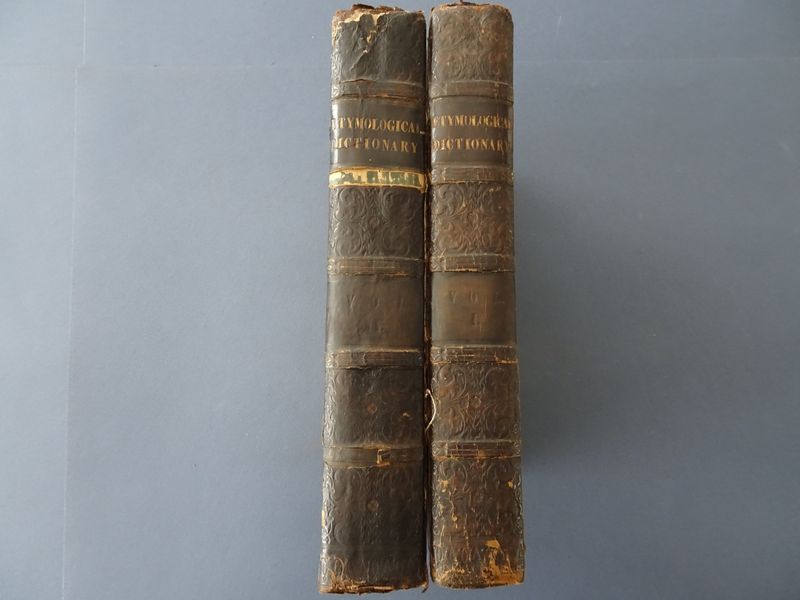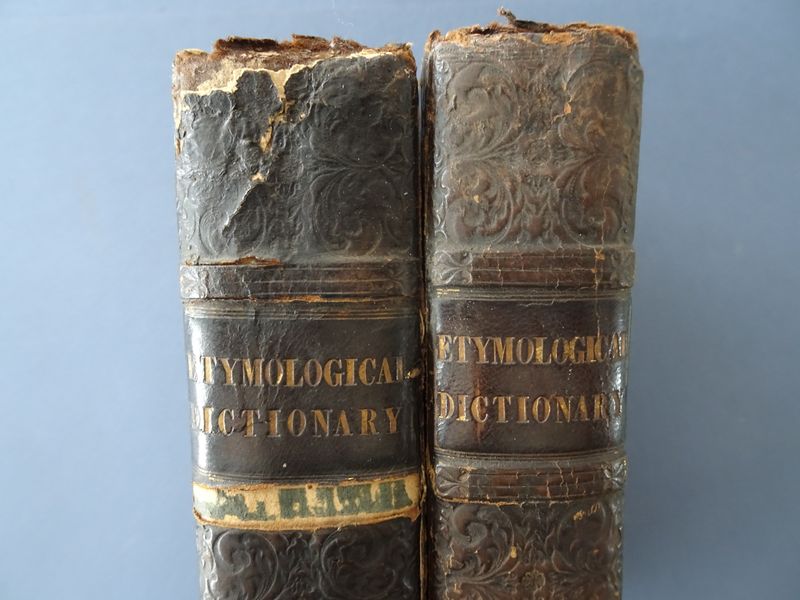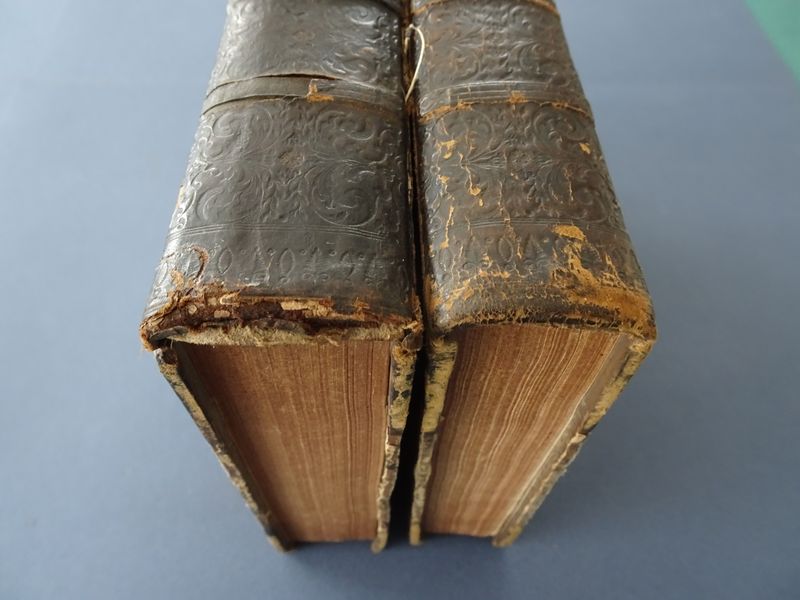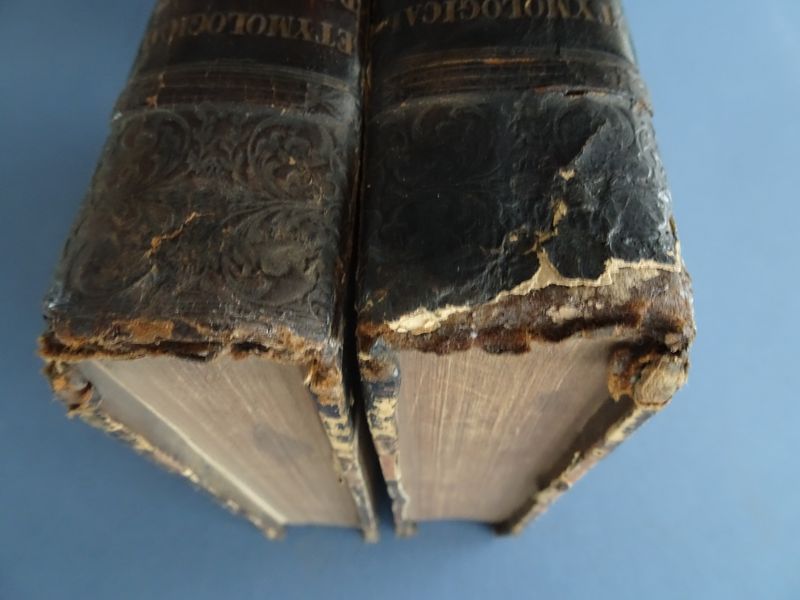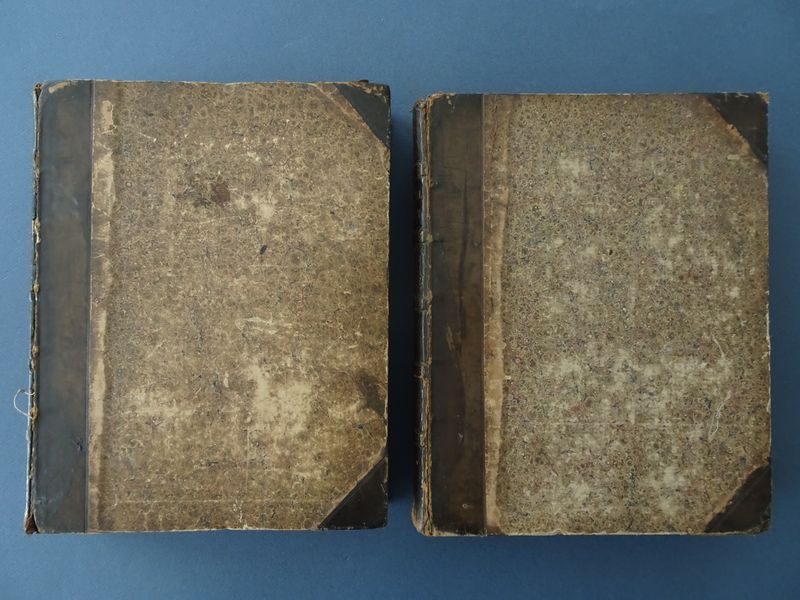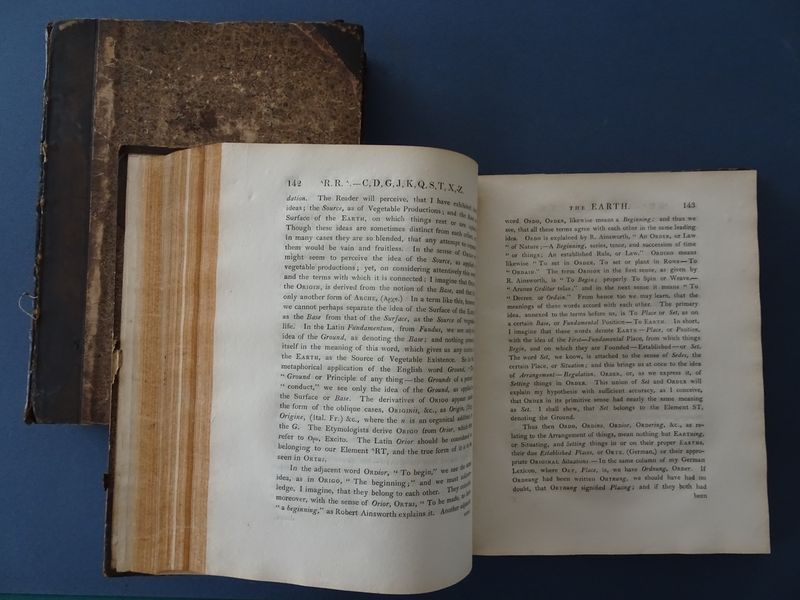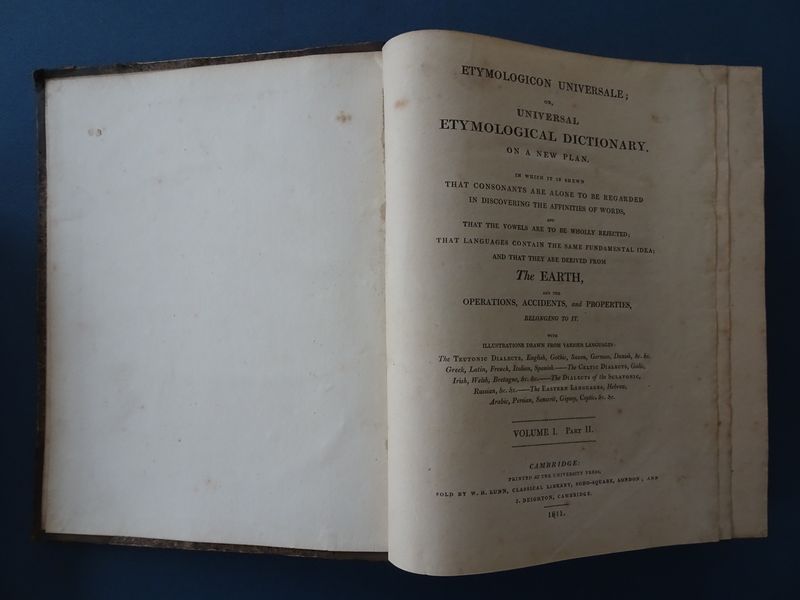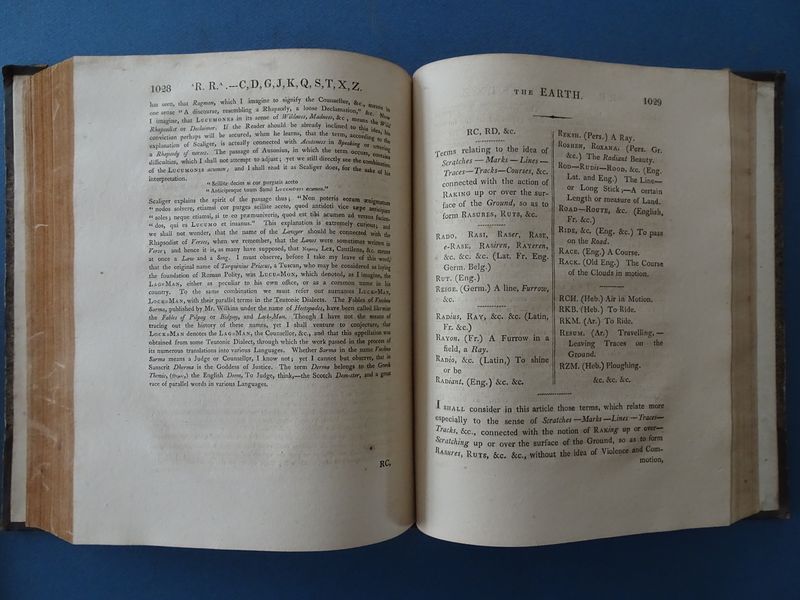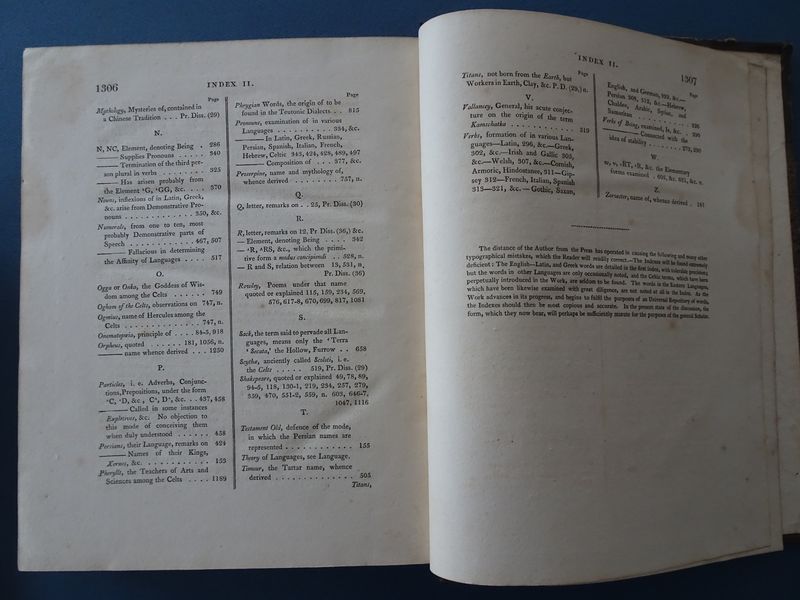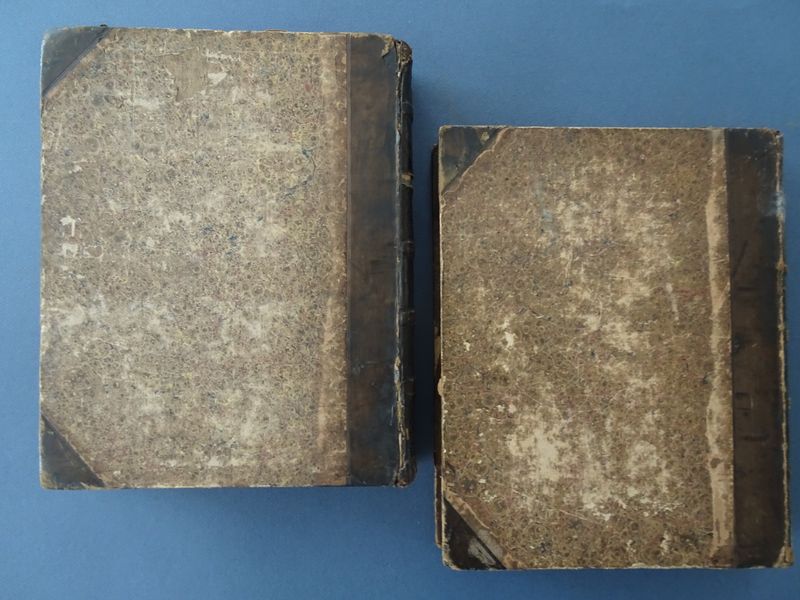BOOKS
Walter Whiter.
Etymologicon Universale.
Or, Universal Etymological Dictionary. On a New Plan. In which it is Shewn, that Consonants are Alone to be Regarded in Discovering the Affinities of Words, and that the Vowels are to be Wholly Rejected; that Languages Contain the Same Fundamental Idea; and that They are Derived from the Earth, and the Operations, Accidents, and Properties Belonging to it.
Cambridge, University Press, 1811. First edition.
€ 695.00
2 volumes: vol. I, part 1 and 2 complete (vol. II appeared several years later in 1825). Bound, leather spine with 5 raised bands, marbled boards, vi+1307pp., 22x27cm., in good antiquarian condition (traces of use and wear on the bindings: one raised band on the spine of vol.II is missing. Upper part of both spines slightly damaged. More pictures on www.somethingz.be) Rare original set of this obscure but important linguistic study.
The Reverend Walter Whiter (30 October 1758 in Birmingham, England? 23 July 1832 in Hardingham)was an English philologist and literary critic. He is known for his 1794 work A Specimen of a Commentary on Shakspeare. Specimen, which explored As You Like It in terms of John Locke's philosophy of associationism, has been described as the first work of literary criticism to use scientific psychology. In addition to his literary criticism, Whiter published his etymological research, first as Etymologicon Magnum in 1800, then as Etymologicon Universale in 1822 (vol. 1 and 2) and 1825 (vol. 3); August Baron Merian, a correspondent of Samuel Butler, stated that he "pit(ied)" Whiter, and described him as "(a) great etymologist?perhaps the greatest that ever lived. A genius certainly; but it seems, like most eminent artists, dissolute." (from: wikipedia)


